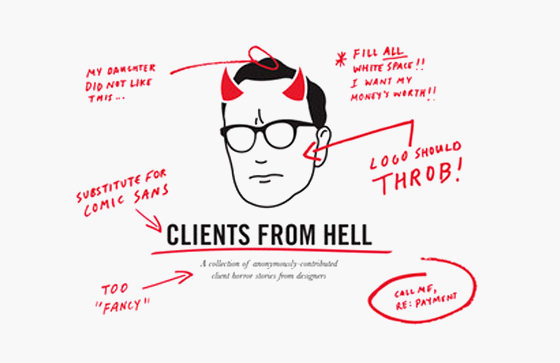Author: Paul Hellquist
Source
Inside the Box serves as a forum for individuals involved in the production of Gearbox Software content to share personal motives, methods, process and results. Gearbox Software projects are created by a diverse range of individuals spanning a spectrum of different backgrounds, interests, objectives and world views. The views and opinions expressed in this article are those of the author and do not necessarily reflect the official policy or position of Gearbox Software or any of its individual members outside of the author.
Hello again. Paul Hellquist here, creative Director on Borderlands 2. Today I want to talk about a topic that I’m sure most gamers never really think about but game developers think about an inordinate amount of time: names. I’m talking about the names of characters, places, enemies, even the games themselves.
In the 14 years I’ve been making games I’ve been involved in coming up with names for a lot of things. I thought gamers might find it interesting that almost every name in a game usually goes through a lot of discussion with the most controversial things to name obviously being main characters and the games themselves. I’ve also seen an interesting pattern develop on how the process goes for naming things.
GREAT IDEA!…I HATE THE NAME.
Generally the process of naming things in a game starts like this: A designer or creative director type comes up with a character. At this point one of 2 things happens. The first result is that initial creative person has some kind of epiphany and the perfect name for this character spawns fully formed. A great example of this in Borderlands was Gaige’s robot, Deathtrap. Deathtrap was fairly simple to name as originally he was going to be a combat version of Claptrap. “Deathtrap” was an immediate and obvious choice to connect his name to Claptrap thematically and communicate his combat nature, but the word deathtrap also has the secondary meaning (something we love in Borderlands fiction) of an object that might accidentally kill you.
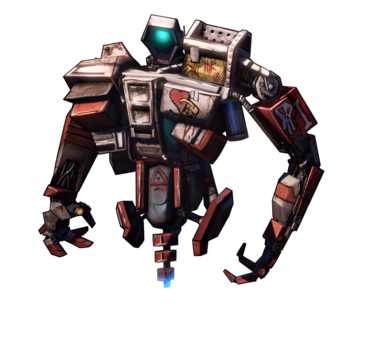
Its great when this first result occurs as usually it goes very smoothly and everyone loves the name. Unfortunately, the much more common sequence of events goes more like this: The game has a main character. This character is very important. They are the hero of the game. They are going to be in all of the previews, they are going to be on the box, they are going to be on the magazine covers. The success of this character is intrinsically related to the success of the game. Naming this character is extremely important. You have to find something that won’t alienate people or turn them away. (Ever notice how few game heroes are named Adolf?) It also can’t be so generic that no one remembers it. (Don’t worry, Mr. President, John Smith is on the job!) Finally, it can’t be too similar to major heroes in other games to ensure there is no confusion by customers as to what franchise the game is part of. You want your characters to own the name in the marketplace as much as possible. Axton could never be named “Sam Trisher” and Maya could never be named “Lara,” for example.
How these things usually work is that a designer just picks whatever random name they think of of the top of their head and name the character in the pitch document or design document. The designer knows that name is not final so he doesn’t spend any time thinking about it. The next thing that happens is team members read the document and hate whatever name you came up with. They tell you how much they hate the name and tease you relentlessly about it. You tell them it is placeholder and encourage them to give you a better alternative. They don’t. They never do. Wait, that’s not entirely fair. They often suggest something that you hate. So, what happens at this point? Generally nothing; the name that no one likes lingers. With nothing else to call the character the team continues to use the crummy name no one likes. After about six months no one thinks twice about the name anymore and it becomes comfortable. Six months after that the marketing department, or an owner, or a publishing partner (basically someone really important) comes to the creative director and says, “We’ve got a major magazine coming in for a preview next week. We need the final name of the character for the article. Oh, by the way, we hate the name you are using now.”
The funny thing that happens is that at this point the team is so used to the name we all hated at first that we now can’t think of this character as anything else and are pissed that it has to change. “Dick Lightswitch is the best name ever! I can’t believe the boss is making us change it! Marketing can go to hell!”
So, you had 12 months to come up with a decent name for your character and are now forced to come up with one in a week. You grab a couple people and you start brainstorming names. They all sound crappy. Someone always had an ex-boyfriend or girlfriend and you can’t use that name because that guy was a jerk. Eventually you whittle a list down to 5 names that mostly don’t make you want to throw up. You bring them to the marketing team and they immediately cross off 3 of them because of some weird connection to other products or for legal reasons. Sometimes you go to them with your list and they tell you some other random name and say, “We’ve decided to go with this.” Now, thankfully, the marketing team at Gearbox is awesome and I’ve never had that happen for characters but it is a common occurrence in the industry and with names of the games or DLCs it happens all the time.
SALVADOR AS “THE MERC”
Let me walk you through an example of this who process that happened on Borderlands 2. It revolves around Salvador. This story is not about the name Salvador, but is actually about the name of his character class, the Gunzerker.
When we first came up with the character classes for Borderlands 2 most of the class names were fairly obvious and straightforward. Axton was the Soldier, Maya was the Siren, Zer0 was the Assassin, and Salvador was…well…we didn’t really know what to call “dual wielding guy” so we went with the super generic “Merc”. We really didn’t like the name. It was too bland and all of the Vault Hunters in the first game were called “Mercs” by the enemies. Aren’t they all mercs then? Basically, we knew it was lousy since it didn’t stand out.
Eventually we decided that Axton was a souped up Soldier compared to Roland in the first game so we decided to change him to the Commando to better represent his more advanced skills and weaponry. Obviously Zer0 and Maya’s class names remained unchanged. So where did Gunzerker come from? Well the story goes pretty much like the second outcome I described above.
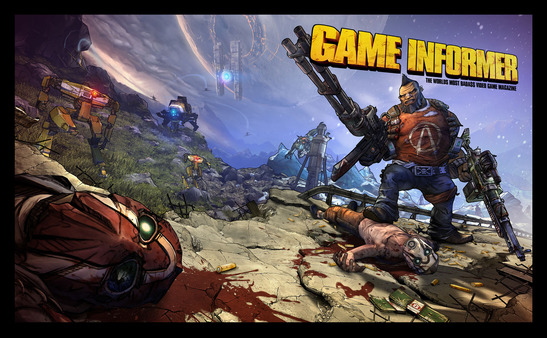
About a year after we had been working on the game, Game Informer magazine was coming in for the big world exclusive reveal of the game. At that time of development Salvador was the only playable character model that we felt was far enough along to show off for a magazine cover so it was decided that he would be the face of the article. We were also going to go into some detail on his character class so it was important that we had a name for the class that we believed was good enough to ship so that we wouldn’t need to change the marketing message about the class later in the PR campaign. So, as I said, a week before Game Informer arrived we were finally forced to face off about what the name of the class should be.
Personally, I was partial to Gunslinger. He can whip out two guns of any type, really slinging them around the battle. But there was a concern that Gunslinger conjured up images of a guy in a duster and a cowboy hat. Sal did not look like that. It was a fair concern, although I argued we would define what a Gunslinger looks like on Pandora and it would be fine. I clearly did not convince anyone.
So where did Gunzerker come from? While talking through the problem with Scott Kester, the concept artist who drew Salvador, he asked what Salvador was all about to try and bring us back to the heart of the character. I said, “He’s kind of like Brick only instead of his fists he uses guns.” Brick’s class was Berserker so Scott, jokingly, said “So he’s a Gunzerker.” Everyone in the room laughed. It was a fun moment and we kept brainstorming. I brushed the name aside as a joke and kept looking for the winner.
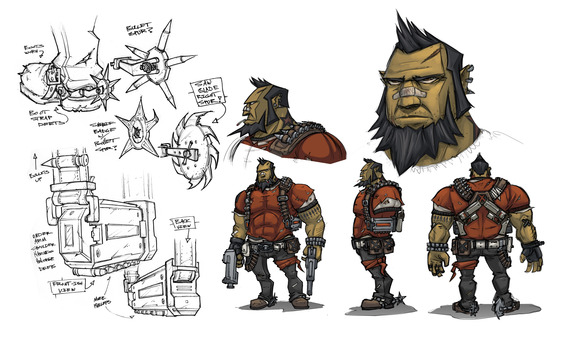
But the word Gunzerker started circulating the team and it quickly became clear that I was the only guy in that discussion who thought the name was suggested as a joke. Gunzerker eventually reached the ears of Brian Martel, owner and the Chief Creative Officer at Gearbox, and he was a big fan of the name. Our time was getting really short at this point before our big reveal to Game Informer. We had a final meeting with the partners, marketing and the leads. Against my protestations the group decided that Salvador would be the Gunzerker.
I was pissed.
I felt the name was a cheap laugh, and although comedy is in an important part of the franchise I had a strong rule that the characters and main plot should take itself very seriously and be played fairly straight. I felt making a goofy play on words in the name of the character class was not the right way to present the game, especially in its world debut. The counter argument was that Gunzerker made a play style connection to Brick fans that would help returning players make more informed choices about who to play. It was also a unique character class name so we could define and “own” it.
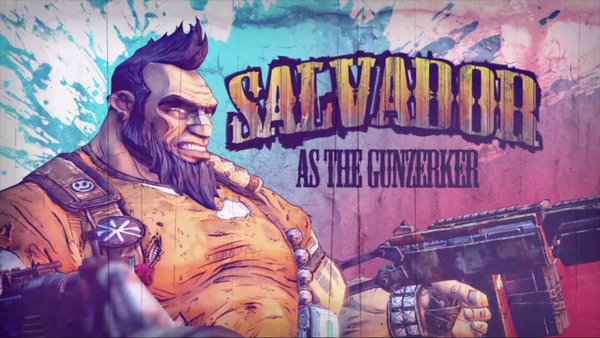
It turns out that when the name was announced in the article and fans start talking about the character there was not a single whiff of people thinking the name was tongue in cheek. Another year passed and the game launched. I was still a bit bitter, but had mostly gotten over it. Now a year after release, it seems completely ridiculous how worked up I was over this name. Of course he is the Gunzerker! The name, it turns out, has very little impact on people’s perceptions of the character. It really just doesn’t matter. What matters is that the class is fun, fulfills the fantasy, and meets the expectations of the players.
BULLY-WHAT-NOW?
Another Borderlands 2 story I feel I need to tell about naming things is that of the Bullymong. The name of the bullymong creature was the most contentious thing that was named in the game. The creature was designed by monster designer Ruben Cabrera and in his initial pitch for the four-armed ape it was called a “Primal Beast.” He picked this name as a descriptive term to help communicate to the team what the goal of the creature was. This type of name is usually what the first names for things are when designing a game. They are usually a very generic sounding name whose intent is simply to communicate to artists, animators, and programmers what the role and goal of the system, enemy, or weapon is. The funny thing is that these names stick around for so long that people forget that they are placeholder and become attached to them.
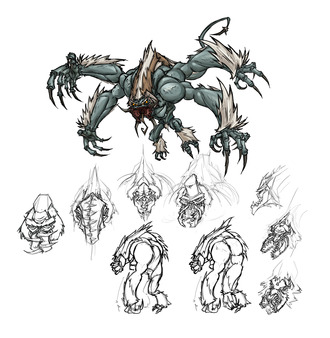
So the first name that Ruben came up with that he considered “real” was “Bullymong.” This name came from the combining the word “bully” with the word “mongrel”. Ruben’s goal being to try and find a unique name that still evoked some of the vibe of the creature. Many people hated it. “Primal Beast is way better!” they would say. As creative director I was always pushing the team to remember that placeholder names are just that, placeholder, and exist to be replaced. We cannot get attached to them. We needed names that were our own whenever possible and did not feel generic. I loved the name bullymong because it was unique and it made me smile how Australian it felt.
Most of the team, on the other hand, hated this name. So we went through a few other suggestions over the months but none of them were very sticky or were rejected for one reason or another. Eventually we threw up our hands and went with Ruben’s original suggestion, “Bullymong.”
Does this sequence sound familiar? If so, that’s because you’ve probably already experienced it in Borderlands 2.
During one of the arguments about the name later in that cycle, Matt Armstrong (Senior designer and now Franchise director for Borderlands) jokingly said we should make a mission about how terrible the name bullymong is. We laughed and everyone started throwing out other joke ideas about how a mission like that would work. How it should feature Hammerlock trying to name it and how every name is thrown out for a different reason and eventually he uses the original lousy name. It was great catharsis for the team after a heated discussion, but we loved the ideas so much that we decided to actually make the mission. That mission became “The Name Game.” “The Name Game” is the mission early in the game where Sir Hammerlock asks you to study the bullymong for his almanac and the name of the bullymong is changed a few times during the mission including “Bonerfart”, before ultimately ending with bullymong despite him hating it.
So “The Name Game” mission exists as an inside joke for the team about the ongoing battle of naming the bullymong during development. Every name in that mission, except for “Bonerfart”, was a name that we used for the Bullymong for some period of time during development.
LESSONS LEARNT
The biggest thing I’ve learned about naming things in games over the years is that the team cares way more about the names of the characters and monsters than you, the player, does. For the most part customers really couldn’t care much less. They are ready and willing to accept pretty much any name that you present to them. That isn’t to say there aren’t good names and bad names but for the most part names are not worth getting emotionally worked up over as a creator.
Hopefully I’ve shown you that we put a lot of time, effort, and passion into even these very small details and how the emotions of the development team can shape what you actually see in the game. So the next time you see a really descriptive but generic name in a game it was probably a designer placeholder name that never got replaced because the team grew really attached to it. Or the next name you think a name is awesome, probably someone on the team despised it and lobbied hard against it. Be glad that person lost the argument like I did with Gunzerker.



